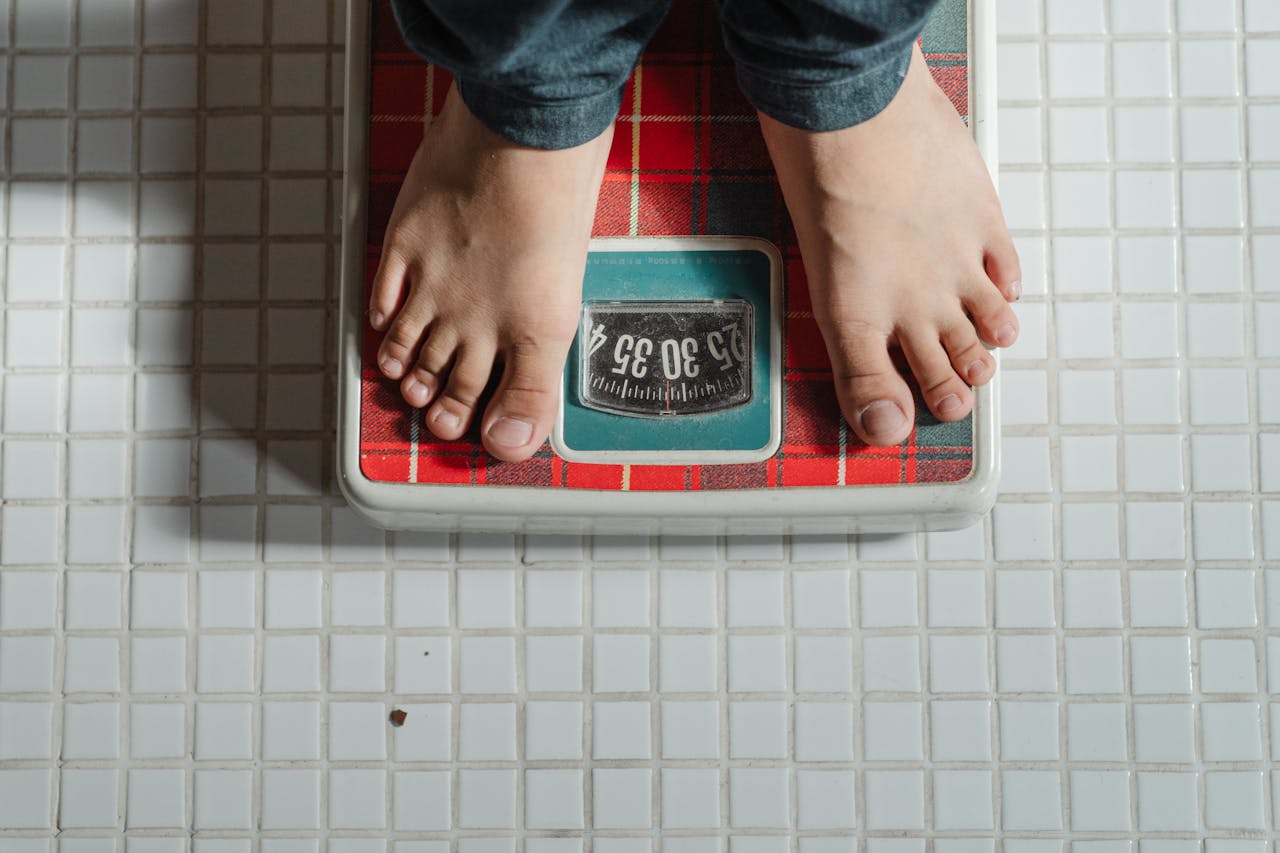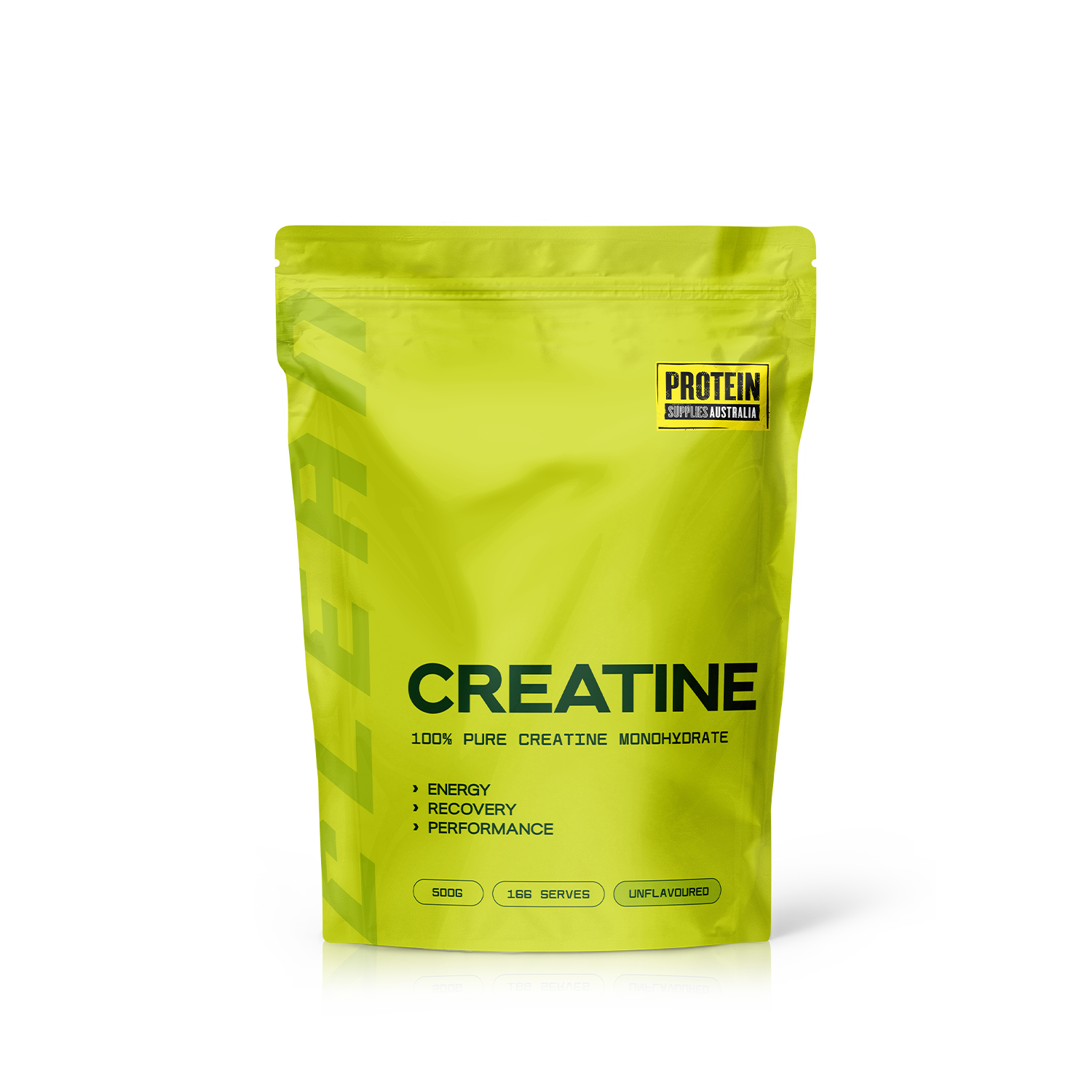Creatine is one of the most widely researched and used dietary supplements in the world. Most commonly associated with muscle mass and athletic performance, many people wonder if it can also support fat loss and help them lose weight.
So, does creatine help with fat loss? The answer is more nuanced than a simple yes or no. Let’s dive deep into the effects of creatine supplementation on body composition, energy expenditure, and its role in a sustainable weight loss journey.
What is Creatine?
Creatine is a naturally occurring compound made from amino acids (arginine, glycine, and methionine) and synthesised in the liver, kidneys, and pancreas. It’s stored mostly in skeletal muscle and used to replenish adenosine triphosphate (ATP) — the primary energy currency of the body — especially during short, intense bursts of activity like sprinting or resistance training.
People can obtain creatine through foods such as red meat and fish, or by taking creatine as a supplement—most commonly in the form of creatine monohydrate.
How Creatine Affects Body Composition
Creatine doesn't directly burn body fat. Instead, it works by increasing your lean tissue mass, which alters your body composition. This shift leads to a decrease in body fat percentage, even if your body weight stays the same or increases slightly due to water retention or muscle gain.
Here’s how:
-
Lean Muscle Mass Gain: Creatine supports muscle hypertrophy (muscle growth) when paired with resistance exercise, which increases muscle mass.
-
Higher Resting Metabolic Rate (RMR): With more muscle comes higher energy expenditure, meaning your body burns more calories at rest.
-
Reduced Fat Mass: Over time, this can result in reduced fat mass and a decrease in body fat percentage.
Creatine and Resistance Training: A Perfect Match for Fat Loss
Multiple studies show that combining oral creatine supplementation with resistance training or heavy resistance training significantly improves outcomes related to muscular strength, lean body mass, and overall exercise performance.
These effects support the body’s ability to lose body fat, especially when aligned with a calorie deficit and a healthy diet.
A 2019 meta analysis involving older adults demonstrated that those who received creatine during resistance training experienced significant improvements in both fat loss and muscle strength, compared to those who did not.
Creatine and Weight Gain: Myth or Reality?
One of the most common concerns when taking creatine is weight gain. However, this increase is typically due to water retention within muscle cells during the loading phase—not an increase in fat mass.
-
Water Weight: During the first week, users often experience an increase in body weight due to retained intracellular water.
-
Not Fat: This water supports muscle recovery and doesn’t contribute to fat gain.
-
Long-Term: As creatine increases muscle fibers and reduces muscle damage, your gains become more solid and long-lasting, not bloated.
Creatine for Older Adults and Weight Management
As we age, maintaining lean muscle mass becomes more challenging. Creatine supplementation may be especially beneficial for older adults looking to support bone health, improve muscular strength, and prevent muscle loss while also working toward weight loss goals.
This makes creatine an effective tool in weight management strategies that aim to reduce fat while preserving or building muscles. Additionally, creatine can help decrease body fat percentage in older adults.
Meta-Analysis of Creatine Supplementation and Fat Loss
A comprehensive meta-analysis of 15 studies on creatine supplementation and fat loss has shed light on its potential benefits. The analysis revealed that creatine supplementation can significantly reduce body fat percentage, with a mean difference of -1.19% (95% CI: -2.03 to -0.34, p = 0.006). However, it’s important to note that the effect on absolute fat mass was not significant, showing a mean difference of -0.18 kg (95% CI: -1.32 to 0.96, p = 0.76).
Interestingly, the meta-analysis found that combining creatine supplementation with resistance exercise produced a greater reduction in body fat percentage compared to resistance exercise alone. This suggests that creatine can enhance the fat loss effects of resistance exercise, particularly for individuals with a higher body fat percentage.
These findings support the use of creatine supplementation as an adjunct to resistance exercise for fat loss. However, it’s crucial to remember that creatine is not a magic pill for weight loss. It should be used in conjunction with a healthy diet and regular exercise to achieve the best results.
Limitations of Creatine Supplementation for Weight Loss
While creatine supplementation can be a valuable tool for fat loss, it’s important to be aware of its limitations. One primary limitation is that creatine may not be effective for everyone, especially those with a low body fat percentage. Additionally, factors such as age, sex, and training status can influence the effectiveness of creatine supplementation on fat loss.
Another consideration is that creatine may not be suitable for individuals with certain medical conditions, such as kidney or liver disease. It can also interact with certain medications, like blood thinners, and may not be advisable for individuals with a history of kidney stones.
Moreover, creatine supplementation alone is not enough for weight loss. A calorie deficit is essential, and creatine should be used alongside a healthy diet and regular exercise to achieve optimal results.
In conclusion, while creatine supplementation can aid in fat loss, it’s essential to understand its limitations and use it as part of a comprehensive weight loss strategy. Consulting with a healthcare professional before starting creatine supplementation is advisable, especially for those with underlying medical conditions or those taking medications.
Side Effects and Safety of Creatine Supplementation
Creatine is generally safe when used appropriately. However, like all dietary supplements, it may have side effects:
Common Concerns:
-
Water retention
-
Muscle cramps
-
Heat intolerance
-
Diarrhea or nausea during high-dose phases
Not Recommended For:
-
Individuals with kidney disease
-
Pregnant or breastfeeding individuals
-
Children and adolescents (due to limited long-term research)
Before starting any supplement, it’s wise to consult a healthcare provider.
How to Take Creatine for Weight Loss
If your goal is to support fat loss while maintaining or gaining lean tissue mass, here’s how to incorporate creatine into your routine:
-
Loading Phase (Optional): 20g/day (split into 4 doses) for 5–7 days.
-
Maintenance Phase: 3–5g/day.
-
Best Form: Creatine monohydrate — affordable, effective, and backed by scientific evidence.
-
Timing: Post-workout is optimal, especially when taken with carbs and protein to aid absorption.
Consistency, combined with strength training, a calorie deficit, and a healthy diet, is key to long-term weight loss success.
Final Thoughts: Should You Use Creatine for Weight Loss?
While creatine is not a fat burner, it is a powerful ally in your weight loss journey. It supports the preservation of muscle mass, boosts training intensity, and shifts your body composition in a favorable direction. Combined with smart training, proper nutrition, and consistency, creatine helps you lose body fat and build a stronger, leaner physique.
Whether you're an athlete, a gym-goer, or simply looking to manage your weight as you age, creatine supplementation can be a valuable part of your strategy.



Creatine Pre Workout: When Is the Best Time to Take It for Optimal Performance?
Peptides and Polypeptides